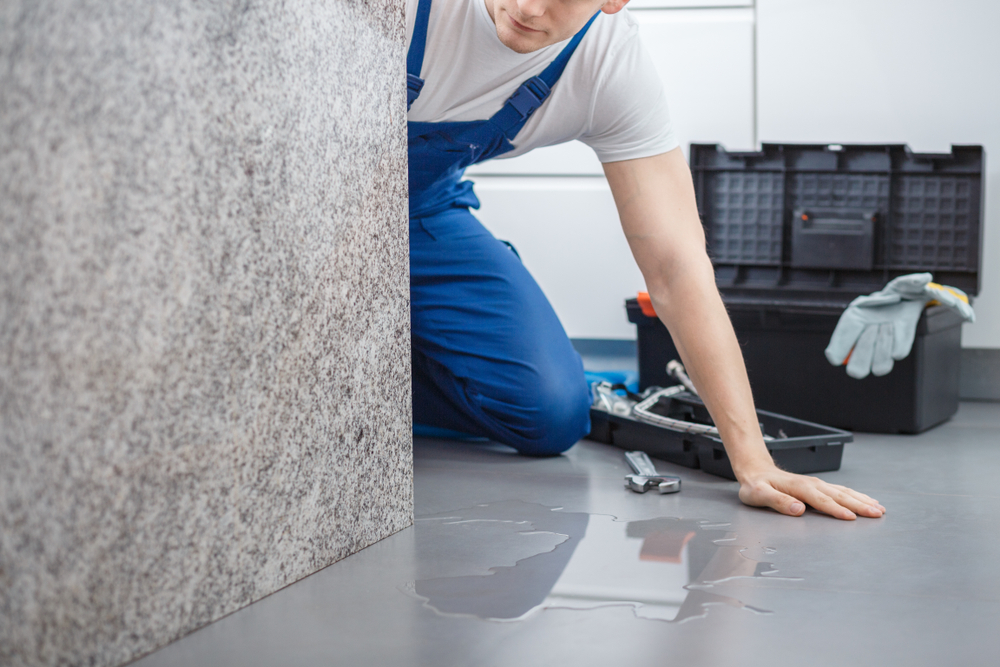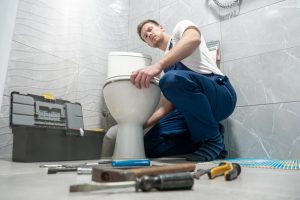
Is your water bill higher than usual? Most homeowners don’t pay a lot of attention to how much water they consume until they get their water bill at the end of the month. But by then, it’s too late to consider what you can do to reduce your water consumption in order to lower your water bill. A quick check for water leaks may be the solution for your unnecessarily high water bills.
This post will help you find out if you are paying for water that you don’t end up using because it is lost through leaks in your plumbing. We will also share some simple tips on how to check for leaks in two key areas; your toilet and your hot water faucet, plus a couple of water-saving tips to help you practice good water usage in your home or business.
The Water Meter: The Best Leak Detection Tool
The easiest way to know if you have leaks in your plumbing infrastructure is to follow this simple procedure:
- Shut off all water coming into your property.
- Find your water meter and take note of the current meter reading.
- Wait for one or two hours, and read the meter again. If the two readings do not match, then you most likely have some leaks within your property.
Water Wasters
1). Toilets
A leaking toilet can be one of the most costly plumbing problems you can have in your home, resulting in the loss of litres of precious water each day. With most Australians complaining about paying huge water bills, saving every drop of water that enters your home can help you save money.
Luckily, it’s easy to establish if your toilet is the source of the leak by asking yourself these questions: Do you hear unusual and recurring noises coming from your toilet? Do you find yourself wiggling the handle or button to stop the noise?
If the answer is yes to any of these questions, your toilet is probably leaking. Typically, toilets develop leaks due to two reasons. First, if the flush ball is not positioned properly or is worn out, water will leak into the toilet bowl.
Second, if the float assembly is not turning off the water, the water will find its way into the overflow pipe. A professional plumber can easily fix both problems in no time.

2). Water Faucets
It’s crucial to remember that leaks don’t just go away by themselves. While some may occur intermittently, leaks often get worse with time. Most leaks are continuous and occur throughout, whether you are using water or not. If your toilet isn’t the culprit, then the next place to look is your hot water faucet.
Faucet leaks are equally or even more costly because you’re wasting both water and energy used to heat the water. If your hot water faucet leaks after being switched off, shut off the water supply and take the faucet out, and replace the washer.
Good Water Usage: Water Saving Tips
1). Don’t overfill bathtub
We all love a nice warm bath, but a full bathtub is often unnecessary because you can adequately bathe with half as much water. Just be mindful of how much water you put in the bathtub.
2). Take lighter and shorter showers
Shut off the water when applying soap. Consider installing a high-efficiency showerhead.
3). Wash car sensibly
Wash in intervals and rinse with shorts spurts of water. Try to wash your car near a garden or flower bed to give the plants a free drink.
4). Washing machine
Wash full loads whenever possible. Use cold water to save energy. Get a high-efficiency washing machine.
If you suspect you have a water leak, please call us at Water Leak Detection for a free consultation today on 1300 425 325 or leave an inquiry on our website.

